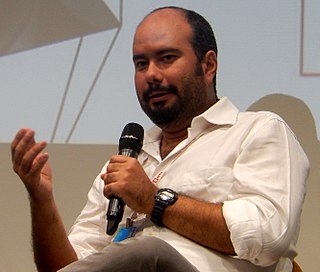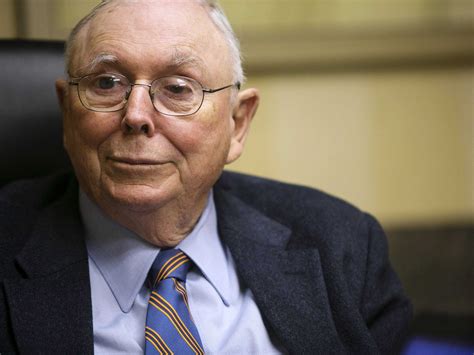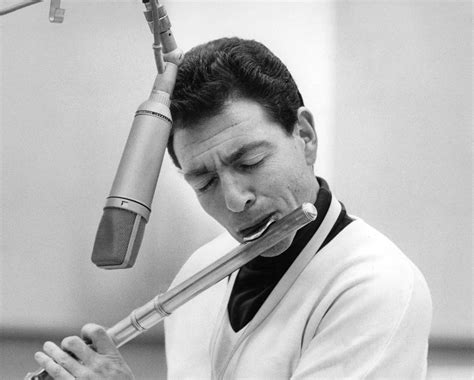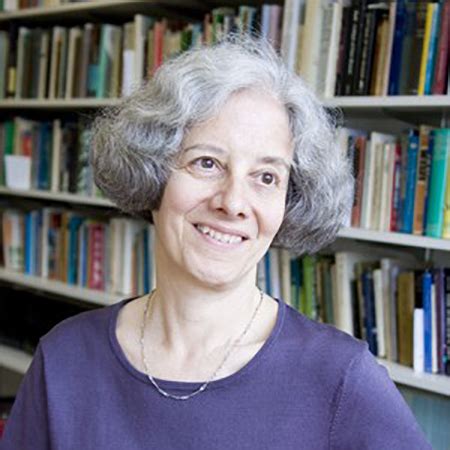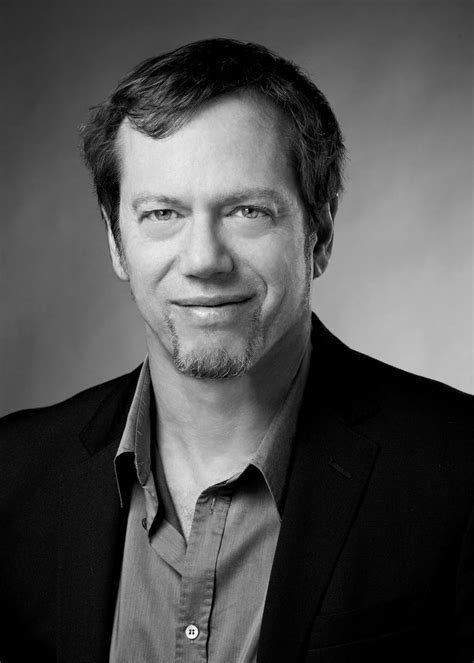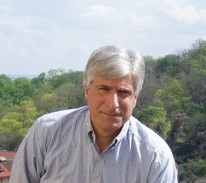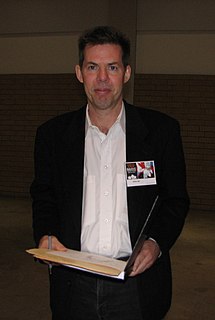Top 1200 Thorough Knowledge Quotes & Sayings - Page 20
Explore popular Thorough Knowledge quotes.
Last updated on April 17, 2025.
To look upon the soul as going on from strength to strength, to consider that she is to shine forever with new accessions of glory, and brighten to all eternity; that she will be still adding virtue to virtue, and knowledge to knowledge,--carries in it something wonderfully agreeable to that ambition which is natural to the mind of man.
Knowledge has always been important, of course. The ancient Egyptians did not raise the stones for the pyramids relying on the incantations of their gods. The waters in the irrigation canals of the great Indus Civilisation did not flow according to the laws of ignorance. Knowledge has always been power and wealth.
All schools, all colleges, have two great functions: to confer, and to conceal, valuable knowledge. The theological knowledge which they conceal cannot justly be regarded as less valuable than that which they reveal. That is, when a man is buying a basket of strawberries it can profit him to know that the bottom half of it is rotten.
Monks, when ignorance is abandoned, and knowledge arises in the monk, with the ending of ignorance and the arising of knowledge he clings neither to sense-pleasures, nor does he cling to views, nor to precepts and vows, nor to a Self-doctrine. Not clinking, he is not disturbed; not disturbed, he attains individually nibbana.
Confronted with such a variety most philosophers try to establish one approach to the exclusion of all others. As far as they are concerned there can only be one true way- and they want to find it. Thus normative philosophers argue that knowledge is a result of the application of certain rules, they propose rules which in their opinion constitute knowledge and reject what clashes with them.
In order to the attaining of all useful knowledge this is most necessary, that we fear God; we are not qualified to profit by the instructions that are given us unless our minds be possessed with a holy reverence of God, and every thought within us be brought into obedience to Him.... As all our knowledge must take rise from the fear of God, so it must tend to it as its perfection and centre. Those know enough who know how to fear God, who are careful in every thing to please Him and fearful of offending Him in any thing; this is the Alpha and Omega of knowledge.
So the state founded on natural principles is wise as a whole in virtue of the knowledge inherent in its smallest constituent class, which exercises authority over the rest. And the smallest class is the one which naturally possesses that form of knowledge which alone of all others deserves the title of wisdom.
The Tibetan religion has a past. And furthermore it has such an appeal. There again young people today are drawn to Buddhism and to Tibet. It's not only because of the Dalai Lama. It's because of what Tibet represents. There is a vast reservoir of knowledge, of mystical knowledge, which can be found in Tibet.The Chinese shouldn't be afraid of that really. They have other means of survival.
We have new media, new forms of connectivity, and an enormous transference of knowledge. When you study evolution, you see that when new genes meet and multiply, they create new contexts and new species. In a sense, the gene-pool of knowledge and of people connecting at all levels is literally spawning a kind of mind-pool of possibilities.
So if somebody has chronic pain, we want to manage the pain, but we still want to treat the insomnia separately. So what we'll tend to do in our sleep lab is we'll do a thorough evaluation and we usually have myself, who is a Psychologist and a Sleep Behavioral Sleep Specialist, I treat the patients first.
Knowledge is the parent of knowledge. He who possesses most of the information of his age will not quietly submit to neglect its current acquisitions, but will go on improving as long as means and opportunities offer; while he who finds himself ignorant of most things, is only too apt to shrink from a labour which becomes Herculean.
Oh, what a favored people we are to have this light, this knowledge, these opportunities for happiness on earth and throughout the eternities. May we commit to share a knowledge of this magnificent work, personally or through missionaries, with our friends and neighbors that they may join this kingdom of God on earth, and receive the consummate, eternal blessings available to them.
To-day we live so cowed under the bombardment of this intellectual artillery that hardly anyone can attain to the inward detachment that is required for a clear view of the monstrous drama. The will-to-power operating under a pure democratic disguise has finished off its masterpiece so well that the object's sense of freedom is actually flattered by the most thorough-going enslavement that has ever existed.
Knowledge and personality make doubt possible, but knowledge is also the cure of doubt; and when we get a full and adequate sense of personality we are lifted into a region where doubt is almost impossible, for no man can know himself as he is, and all fullness of his nature, without also knowing God.
The library connects us with the insight and knowledge, painfully extracted from Nature, of the greatest minds that ever were, with the best teachers, drawn from the entire planet and from all our history, to instruct us without tiring, and to inspire us to make our own contribution to the collective knowledge of the human species.
The internet has spawned people for whom knowingness is more important than knowledge. It equips you with the illusion of offering knowledge instantly - and quite easily - so you can read a few articles on a few subjects and feel well informed but not actually know any of those subjects in any depth.
I've approached music with the understanding that knowledge is available regarding tones and their effect upon the body. I think the father of that knowledge was the mathematician Pythagoras who lived several thousand years ago. Pythagoras was also a fine musician and he knew specifically what tones would affect which parts of the body.
It's worse than slave trade because what is being traded is the very knowledge that makes survival possible for 80 percent of the people of this world. These 80 percent live on the biodiversity and the knowledge they have evolved as part of a rich collective heritage involving the use of seeds for growing crops and medicinal plants for healing.
Ambitious men spend their youth in rendering themselves worthy of patronage; it is their great mistake. While the foolish creatures are laying in stores of knowledge and energy, so that they shall not sink under the weight of responsible posts that recede from them, schemers come and go who are wealthy in words and destitute of ideas, astonish the ignorant, and creep into the confidence of those who have a little knowledge.
It is better to have but little knowledge with humility and understanding, than great learning which might make you proud. For a person's merits are not to be estimated by having many visions, or by knowledge of the bible, or by being placed in a higher position; but by being grounded in true humility, and by seeking always, purely, and entirely, the honor of God.
Since reasoning , or inference, the principal subject of logic, is an operation which usually takes place by means of words , and in complicated cases can take place in no other way: those who have not a thorough insight into both the signification and purpose of words, will be under chances, amounting almost to certainty, of reasoning or inferring incorrectly.
Remember also that it is not knowledge but the yearning for knowledge that makes for a complete, accomplished man. Such a man does not stand still but perseveres in the face of adversity, nor does he remain untouched by the pain cause by absence. On the contrary, he recognizes himself in each cry, uttered or repressed, in the smallest rift, in the most pressing need.
New knowledge has led to the recognition in the theory of evolution of more than a hypothesis. It is indeed remarkable that this theory has been progressively accepted by researchers, following a series of discoveries in various fields of knowledge. The convergence, neither sought nor fabricated, of the results of work that was conducted independently is in itself a significant argument in favor of this theory.
[Theodore Roosevelt] was a naturalist on the broadest grounds, uniting much technical knowledge with knowledge of the daily lives and habits of all forms of wild life. He probably knew tenfold more natural history than all the presidents who had preceded him, and, I think one is safe in saying, more human history also.
The knowledge of an unlearned man is living and luxuriant like a forest, but covered with mosses and lichens and for the most part inaccessible and going to waste; the knowledge of the man of science is like timber collected in yards for public works, which still supports a green sprout here and there, but even this is liable to dry rot.
I should say that the useful results of science had accumulated, but that there had been no accumulation of knowledge, strictly speaking, for posterity; for knowledge is to be acquired only by a corresponding experience. How can we know what we are told merely? Each man can interpret another's experience only by his own.
If it is not strong upon your heart to practice what you read, to what end do you read? To increase your own condemnation? If your light and knowledge be not turned into practice, the more knowing a man you are, the more miserable a man you will be in the day of recompense; your light and knowledge will more torment you than all the devils in hell. Your knowledge will be that rod that will eternally lash you, and that scorpion that will forever bite you, and that worm that will everlastingly gnaw you; therefore read, and labor to know that you may do--or else you are undone forever.
The British are proud of their ability to create a muddle and then muddle through all difficulties. I must shake the British pride: muddle is not an exclusively British institution. Read descriptions, for instance, of the over-organized, wonderfully systematic and "thorough" German war machine during the last war.
For years I have told my students that I been trying to train executives rather than clerks. The distinction between the two is parallel to the distinction previously made between understanding and knowledge. It is a mighty low executive who cannot hire several people with command of more knowledge than he has himself.
What does cookery mean? It means the knowledge of Medea and of Circe,
and of Calypso, and Sheba. It means knowledge of all herbs, and fruits, and
balms and spices... It means the economy of your great-grandmother and the
science of modern chemistry, and French art, and Arabian hospitality. It
means, in fine, that you are to see imperatively that everyone has something
nice to eat.
Some literature is knowledge, some is just data. But if I can get a "happy" ending - which is when for the characters I'm writing about, something happens that they move from wherever they are in the beginning to knowledge or wisdom, they know something they never would have acknowledged or realized if it hadn't been for my book - that for me is what literature does.
The reason we can't attain the highest level of knowledge while incarnate is that we can't then wholly escape the influence of the body (and so of perception and of certain desires that take us away from thinking properly); and that prevents us from understanding fully what forms are, which one must do in order to have the highest level of knowledge.
Good science requires distinguishing between "felt knowledge" and knowledge arising out of testable observations. "I am sure" is a mental sensation, not a testable conclusion. Put hunches, gut feelings, and intuitions into the suggestion box. Let empiric methods shake out the good from bad suggestions.
When I wrote 'The Alexandria Link,' I discovered that we are only aware of about 10 percent of the knowledge of the ancient world. In the ancient world, most of the knowledge was destroyed. Every emperor of China who came in wiped out everything that came before them, to the point that the country completely forgot its past.























